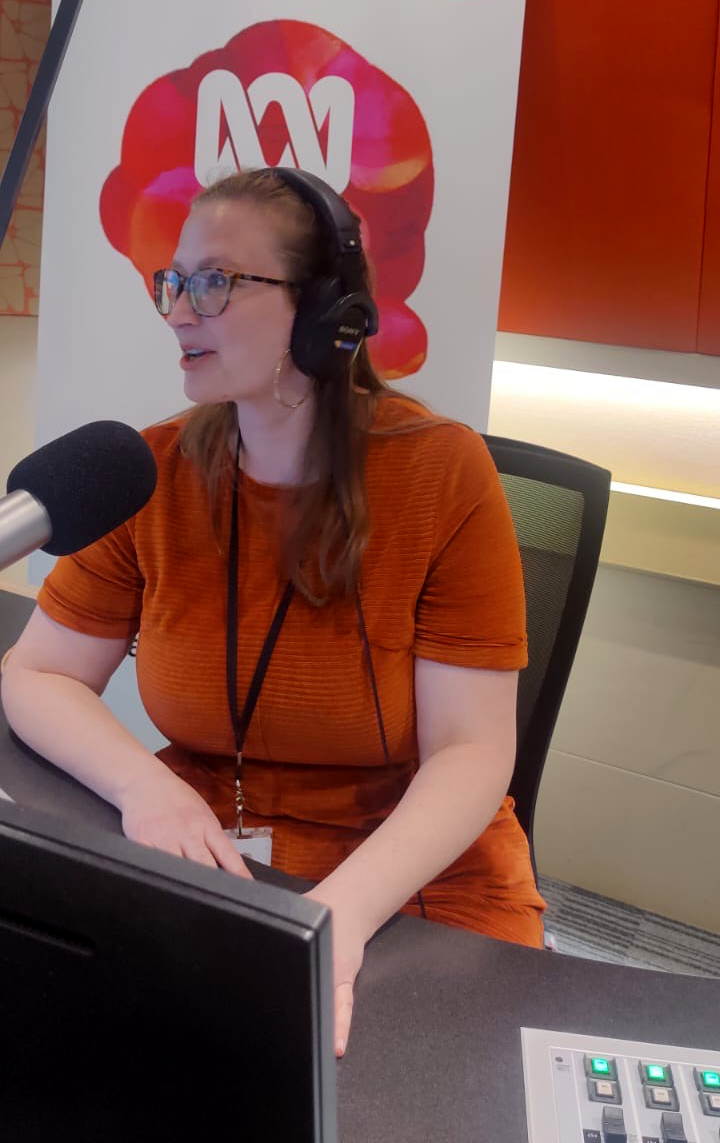4 Minute read
Life as a graduate researcher: Anna Kennedy-Borissow
Disasters can fracture communities. Creative recovery through the arts can help strengthen social connections. PhD candidate Anna Kennedy-Borissow is building the case to include the arts in emergency planning.
The arts can be a great comfort to people after disasters like bushfires, floods or pandemics. But as a field, creative recovery is under-researched, says Anna Kennedy-Borissow. She plans to change this.
“Because of climate change and global warming, we're only going to experience an increase in the frequency and severity of extreme weather events, which means that we need more and better ways to cope with disasters,” she says.
Anna has a background in theatre-making and arts management. She had a network in the arts community before beginning her PhD in Arts. But the University of Melbourne has connected her to disaster researchers. And it is helping her polish her academic research skills.
The evidence Anna is collecting will help her advocate for the arts in disaster recovery. Her PhD is building the foundation of her future career.
Applying for a PhD scholarship

Anna had a taste of academic research during her Master of Arts and Cultural Management at the University of Melbourne. Her masters supervisor, Dr Kirsten Stevens, encouraged her to apply for a PhD.
As Anna has no academics in her family, Dr Stevens was a welcome guide to academia.
“It's only through being able to talk to Kirsten – and having established trust and rapport – that I could submit a competitive application,” Anna says.
She got the scholarship. It provides her with a stipend for living expenses during her PhD research.
“If you want to do a PhD, talk to people who have applied for and been successful in starting a PhD, especially within your discipline. They will know not only who you can talk to but help guide you in your approach to developing those relationships and make known the unspoken things around academia.”
Learn more about our graduate research options
How creative recovery can help communities after a disaster
The Blacksmiths’ Tree commemorates victims of the 2009 Black Saturday bushfires in Victoria. At almost 10 meters tall, the eucalyptus tree sculpture towers over visitors.
The sculpture is part of the Strathewen Bushfire Memorial that Anna visited while she worked at Regional Arts Victoria.
The Blacksmiths’ Tree shows how the arts can bring a community together after a disaster. The sculpture has 3500 leaves. 1000 were donated by blacksmiths from 28 countries. People from Strathewen participated in welding groups to contribute.
Disasters like bushfires and floods can destroy houses, roads and bridges. But the social environment of communities can also suffer. Creative recovery projects restore community connections to benefit people’s health and wellbeing.
“It's a way of sharing stories and sharing experiences. It’s a reason to come together and a sense of achievement can come from developing these beautiful arts projects. It contributes to people feeling listened to, feeling valued and feeling heard,” Anna says.
“And when you improve the social environment of a community, everything else benefits. So economically, communities are able to prosper, and the natural environment and the built environment can be supported to recover.”
Most current research in creative recovery involves case studies of individual communities. Anna wants to take a broader approach to understanding how the arts has helped a wide range of communities to recover from various disasters. Her focus is especially in regional and rural communities.
How the University of Melbourne supports a PhD in the arts
Anna works at the Faculty of Arts in the School of Culture and Communication. But she also has two PhD advisors based at the Melbourne School of Population and Global Health.
"The disaster research community at the University of Melbourne have been welcoming of me as an arts and cultural management person in this space," Anna says.

I've been lucky that I already have a lot of professional networks in the arts and cultural sector. But to be welcomed by this disaster research network – who have produced really important industry and academic research in this field – has been pretty incredible. Anna Kennedy-Borissow
The University of Melbourne has also helped Anna build research skills. Her school offers skill development for early-career academics and academic CV-writing help.
New career pathways open through a PhD
Anna thinks emergency planning should include the arts. She saw how people turned to arts for relief during COVID-19 lockdowns. Yet the arts community really suffered from a lack of resources and support during this time. This led to sector-wide burn out.
“I was seeing this real contrast between how harmful this experience was to artists, and yet how much society seemed to need artists,” she says.
Anna is open to exploring a range of career options when she finishes her PhD. But first she still has a thesis to write and submit. Whether she stays in academia or returns to industry, she knows she will keep championing the role of the arts in disaster recovery.
“I want to keep contributing to this field.”
First published on 20 March 2024.
Share this article
Keep reading
-
Why research with us
Explore the benefits of undertaking your graduate research at the University of Melbourne.
-
Your research options
Explore your options as a graduate researcher at the University of Melbourne.
-
Your study experience
Discover what it's like to be a graduate researcher. Find out about University life, support services, and opportunities for skills development.
-
How to apply
Find out how to apply for graduate research at the University of Melbourne.